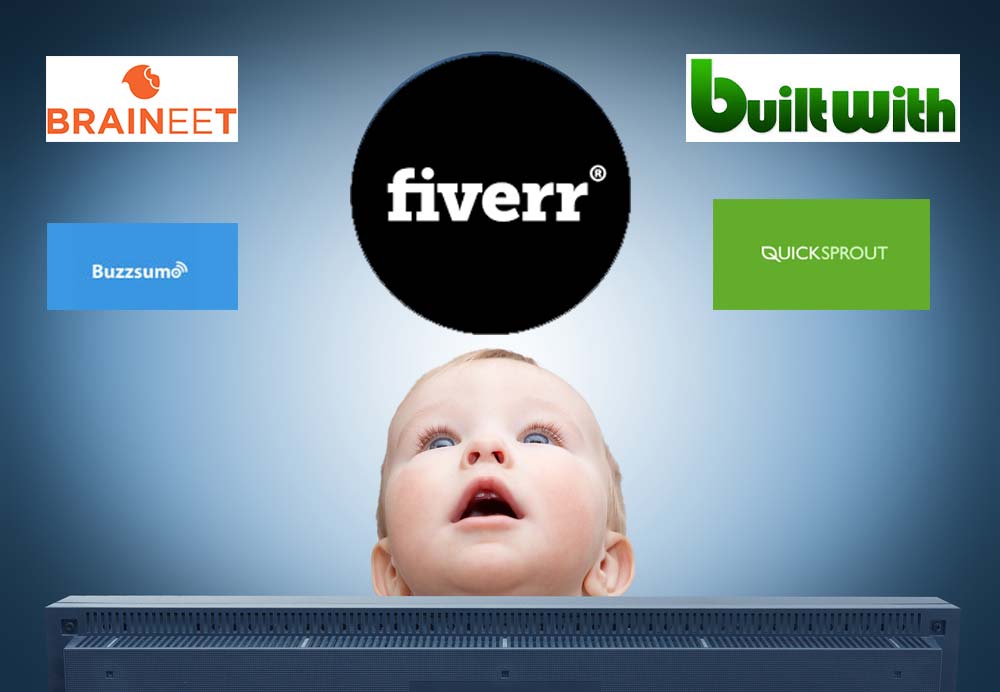Some events you expect to go beyond imagination. In search of inspiration and with admittedly big expectations I entered the venue of The Next Web Europe’s tenth edition in Amsterdam: home to startups the likes of Peerby, Booking.com and WeTransfer. All prime examples of how the digital economy is disrupting the market place. Hence, I hoped to find the vibe of the disruptive economy and get some insight into the second- and third-order effects, and to catch a glimpse of how today’s science fiction will become a reality sooner than we think.
With more than 3500 attendants from over 63 countries, 60 speakers and 400 startups there ought to be a few good stories inside. However, I was a bit disheartened since it didn’t give me the jaw-dropping disrupters I was hoping to write about. It was glamorous, loud, screaming and interactive, but not exactly the global arena of innovation on display I anticipated before my arrival. I kept getting the feeling that there is ‘much ado about startups’; some gossip, rumor and a big variety in pitch and presentation quality. In that sense, TNW15 was very much like all other gatherings focused at this arena of startups, technology and innovation.
Sharing network
It made me wonder, is an exhibition venue a good promotor for the real innovation space? Or is it just a networking arena? In the eyes of the startup, places where investors, mentors and peers gather are very worthwhile. Getting feedback, the right connections and showcasing are key activities and TNW conference can be beneficial. It is an opportunity for VC’s to spot startups that have been off radar. Mentors want to share their experience and are therefore very valuable. They can help with an introduction and provide a network to do business inside the value chain. For all it comes down to starting a conversation and the ‘give forward/ back nature’ of the startup-ecosystem. But what about inspiration? With various stages, you can’t hear all keynotes, but just a few stood out from the crowd and those messages were all but new.
As a startup you can’t fear failure and need to be bold. If you want to change the world, there is no zero risk option. However, you can try to reduce the cost of failure. Werner Vogels‘s advice since 2006 is to do so by working with a backward procedure. Start with the customer in mind and remove waste that doesn’t increase customer satisfaction. It starts with writing a press release announcing the finished product. A part is also to work on Rude FAQs, nasty questions on products to help them prepare: a suggestion for each startup to try-out. Perhaps even during a conference like TNW.
Next Web founder Boris Veldhuijzen van Zanten sees an opportunity to scale the startup ecosystem in Europe. He suggests a mechanism to stimulate corporate venturing and investments in startups: create a European incentive to invest a certain % in new propositions and make it tax attractive. An example might be the UK tax relief policy SEIS; seed enterprise investment scheme.
Werner Vogels, CTO at 20-year old “startup” Amazon, emphasizes that continuous experimentation is a fundamental part of one’s strategy. To keep his customer centric company agile and move fast they work with two-pizza teams. At the same time, direction needs to be given to the inventions. Hence, his advice: ‘Be stubborn on the vision but flexible on the details.’ At Adobe they don’t work with pizzas, but empower employees with a ‘Red Box’ to become CEO of their idea. It contains all the tools to start working when innovation lightning strikes:’40 working hours’, a manual, a candy bar, a bad idea notebook (because having good ideas takes practice) , a Starbucks gift card, and a debit MasterCard preloaded with $1,000 with the message: start experimenting and come with a tested prototype of your idea.
David Mattin, Head of Trends & Insights at trendwatching.com, positively surprised me with his interesting observations on the Power of Platforms; cross devices and cross platform, because connected moments bring opportunities leading to a paradigm shift from IoT to Internet of Caring/ Sharing Things. His advice is to reflect on your process with the following question: are you competing on product or expectations? Think about added values such as convenience, self-improvement, safe life, secure, peace of mind, sustainable. Another focus is the currencies of change: rewarding for behavior that is good for the consumer, the trend to which all healthy apps are targeting. Furthermore, he was witty with suggesting a ‘Tinder’ like umbrella turning green when you are open to provide a shelter for a passing date.
Samir Patel stresses the importance of experimentation and testing the assumptions: are the problems real to customers? He provided practical tool sets based on the growth hacking philosophy to help make understand all the data and how much data is enough? Leading indicators for a healthy online business are the customer engagement numbers and number of downloads: they broadcast your growth. A whole list of sites that can ease your efforts:
 Fiverr : a creative marketplace with a bustling variety of artistic and professional services (to let someone create your website and make sure it works mobile)
Fiverr : a creative marketplace with a bustling variety of artistic and professional services (to let someone create your website and make sure it works mobile)- Builtwith: to spy around, learn and copy how companies you admire work digitally
- buzzsumo: Analyze what content performs best for any topic or competitor
- Sellhack: Find email addresses, if there is an email, you will find it.
- io: Instantly Turn Web Pages into Data
Outreach.io: sales communication - Conspire: Unlock your professional network to uncover your best paths to investors, ideas, resources, and opportunities.(Digital Networking)
- Quicksprout: create more traffic, compare and benchmark
- Spyfu: Download your competitors’ most profitable keywords and ads for paid and organic search
All those Startups
When talking to the different startups, I admire their passion and persistence. At the same time, I see a lot of startups aiming at the same segment, offering just small differential propositions, while all claiming to be the next Uber or Booking.com. All want to ride the wave of the Big Data Revolution, but inherently, the majority will be overwhelmed by the tsunami. All should get a chance to prove they belong to the survivors, but when attending a conference, the threshold could easily be higher.
I get the impression that we are entering a Startup Bubble. Founders are the new Rockstars. With the claim that it was never so easy to start an own business, just having or finding the technical skills to code, a startup can fly off. We are in an era of commodification of advertising: startups keep on targeting this by offering a marketplace or community platform. Most link it to customer retention to persuade advertisers and make it the most interesting revenue stream. Others prefer a subscription or commission model. But all want customers to profit from the associated earnings from data aggregation. How they want to flabbergast the customer? By empowering them to unleash their creativity, free time in daily business. Hence, in one way or another they are facilitators and service providers. Some examples from the conference:
- Somewhere: job marketplace beyond the CV (TNW Europe winner)
- Teamleader: CRM, invoicing and project planning in a single tool (TNW Europe winner)
- Commun.it: twitter community manager to turn data into actionable insight
- BCN startup Groupiest: ease content marketing challenges by curating content and engaging the audience.
- What3words: addressing the world to communicate location
- The LearnScape: a learning eco-system that uses social apps, e-coaching and safe intranet to stimulate formal and informal learning.
- Esolidar: E-commerce powered crowdfunding for charities and building a solidarity ecosystem
- Dreamcheaper: make hotel reservations cheaper by leveraging the crowd
- Elephone: intelligent social phone dialer
- Braineet: community to share ideas
In my opinion an interesting playing field is education. In knowledge lies the future and children are the ones to build it. I had a small chat with Neelie Kroes and she too emphasizes the importance of engaging pupils and students. It would be great if startups alike MNC would share their lessons in entrepreneurship at schools. Make them the hero’s of kids. Scatter the entrepreneurial spirit among youngsters by nurturing the ‘giving back’ act from founders. But it is also an interesting arena due to the increasing ‘war on talent’ and the fact that learning becomes gradually more self-taught through web content that is available to all. More and more effort is put into creating a culture to make it exciting to work beyond the paycheck. However, only entrepreneurship isn’t the hosanna. I think it will become more and more important that one acts out of passion and a wondrous spirit. You are in a partnership with people. That gives meaning and purpose and will make it worth. No matter which direction one chooses.







Wow! That’s excellent list. Well this is the time of AI and working hard for developing business reach while we have tools for Lead generation is useless. I have used few tools for my business for growth hacking like AeroLeads, rainClutch , Rapportive and this tools help me a lot. .